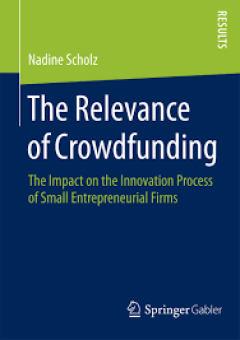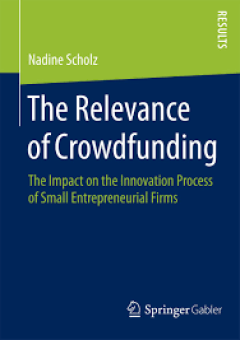Filter by

Women, Art, and Technology
Although women have been at the forefront of art and technology creation, no source has adequately documented their core contributions to the field. Women, Art, and Technology, which originated in a Leonardo journal project of the same name, is a compendium of the work of women artists who have played a central role in the development of new media practice.The book includes overviews of the his…
- Edition
- -
- ISBN/ISSN
- 9780262278966
- Collation
- -
- Series Title
- -
- Call Number
- -

Why Cryptography Should Not Rely on Physical Attack Complexity
This book presents two practical physical attacks. It shows how attackers can reveal the secret key of symmetric as well as asymmetric cryptographic algorithms based on these attacks, and presents countermeasures on the software and the hardware level that can help to prevent them in the future. Though their theory has been known for several years now, since neither attack has yet been successf…
- Edition
- -
- ISBN/ISSN
- 978-981-287-787-1
- Collation
- -
- Series Title
- -
- Call Number
- -

White Space Communication Advances, Developments and Engineering Challenges
This monograph presents a collection of major developments leading toward the implementation of white space technology - an emerging wireless standard for using wireless spectrum in locations where it is unused by licensed users. Some of the key research areas in the field are covered. These include emerging standards, technical insights from early pilots and simulations, software defined radio…
- Edition
- -
- ISBN/ISSN
- 978-3-319-08747-4
- Collation
- -
- Series Title
- -
- Call Number
- -

When China Goes to the Moon...
This book is about China’s ambitions in its most complex and internationally visible space endeavor, namely its human space exploration programme. It provides a comprehensive reflection on China´s strategic direction and objectives in space, including in particular those set forth in its human spaceflight programme and analyses the key domestic and external factors affecting the country’s …
- Edition
- -
- ISBN/ISSN
- 978-3-319-19473-8
- Collation
- -
- Series Title
- -
- Call Number
- -

Emerging Technologies for Emerging Markets
This book introduces inclusive-cost-effective (ICE) approaches that have the potential to transform all aspects of daily lives of people at the base of the pyramid in the economic scale, who represent more than 75% of the world population. ICE means that the approaches must meet the affordability level at the base of the pyramid. This includes mobile banking and financial service technologies, …
- Edition
- -
- ISBN/ISSN
- 978-981-287-347-7
- Collation
- 49 b/w illustrations
- Series Title
- -
- Call Number
- --

Empowering Users through Design Interdisciplinary Studies and Combined Appro…
At the crossroads of various disciplines, this collective work examines the possibility of a new end-user “engagement” in ongoing digital/technological products and services development. It provides an overview of recent research specifically focused on the user’s democratic participation and empowerment. It also enables readers to better identify the main opportunities of participatory d…
- Edition
- 1
- ISBN/ISSN
- 978-3-319-13018-7
- Collation
- 11 b/w illustrations, 57 illustrations in colour
- Series Title
- -
- Call Number
- -

Energy Security and Development the Global Context and Indian Perspectives
This volume provides a systematic framework for energy suppliers, policy makers, academics, students, and all others interested in energy security, and analyzes key issues concerning energy, security and sustainability with the help of a wealth of data. While sustainability is the broadest objective, energy security is an important part of it, at the global, national and societal levels. The de…
- Edition
- 1
- ISBN/ISSN
- 978-81-322-2065-7
- Collation
- 117 b/w illustrations
- Series Title
- -
- Call Number
- -

The Relevance of Crowdfunding the mpact on the Innovation Process of Small …
Nadine Scholz shows that crowdfunding potentially shortens the development cycle of new products, thus enabling an earlier market entry. Hence, crowdfunding serves as a multifaceted early-stage support instrument for innovation implementation facilitated by the crowd's resources. It not only provides upfront cash for product development and production, more importantly it enables a firm to show…
- Edition
- 2
- ISBN/ISSN
- 978-3-658-09837-7
- Collation
- -
- Series Title
- -
- Call Number
- -

The Relevance of Crowdfunding the Impact on the Innovation Process of Small…
Nadine Scholz shows that crowdfunding potentially shortens the development cycle of new products, thus enabling an earlier market entry. Hence, crowdfunding serves as a multifaceted early-stage support instrument for innovation implementation facilitated by the crowd's resources. It not only provides upfront cash for product development and production, more importantly it enables a firm to show…
- Edition
- 2
- ISBN/ISSN
- 978-3-658-09837-7
- Collation
- -
- Series Title
- -
- Call Number
- -

Gaia's web :how digital environmentalism can combat climate change, restore b…
"This book explores how tools of the Digital Age might be mobilized to solve our most pressing environmental challenges, from climate change to biodiversity loss. It argues that digital technology might accelerate environmental sustainability and that engaging with environmental issues may transform Big Tech for the better, if the sector successfully addresses spiraling energy use, pollution, p…
- Edition
- -
- ISBN/ISSN
- 9780262377683
- Collation
- 1 online resource
- Series Title
- -
- Call Number
- -
 Computer Science, Information & General Works
Computer Science, Information & General Works  Philosophy & Psychology
Philosophy & Psychology  Religion
Religion  Social Sciences
Social Sciences  Language
Language  Pure Science
Pure Science  Applied Sciences
Applied Sciences  Art & Recreation
Art & Recreation  Literature
Literature  History & Geography
History & Geography